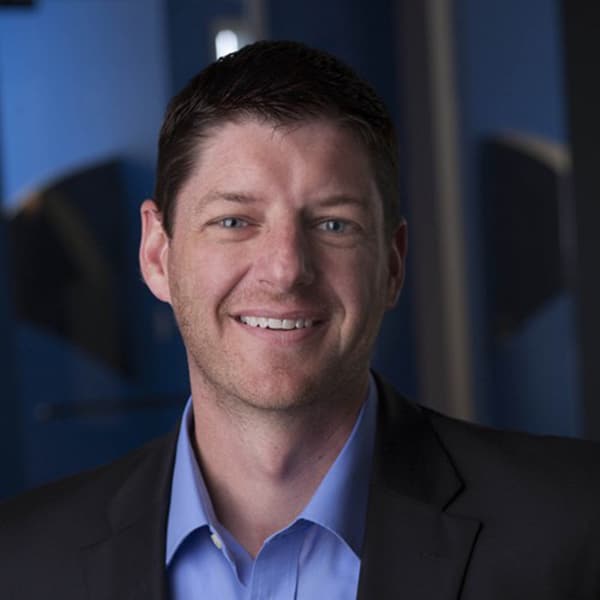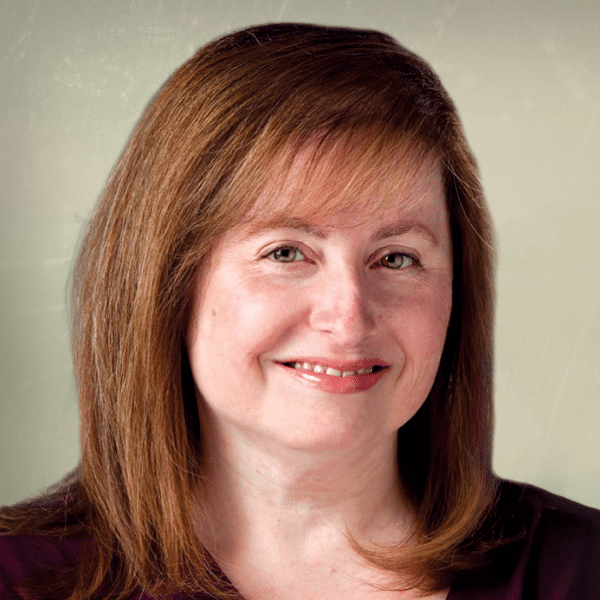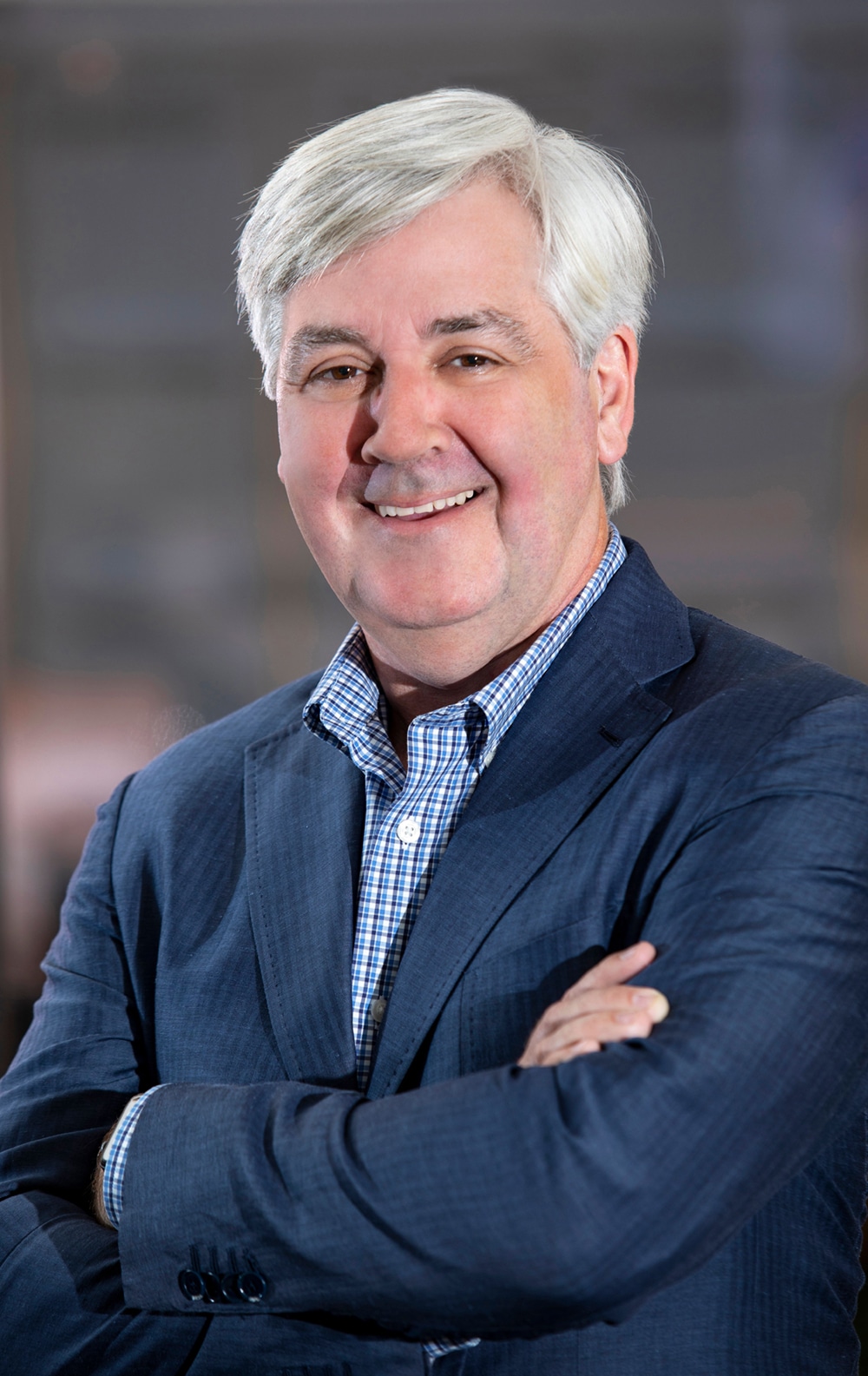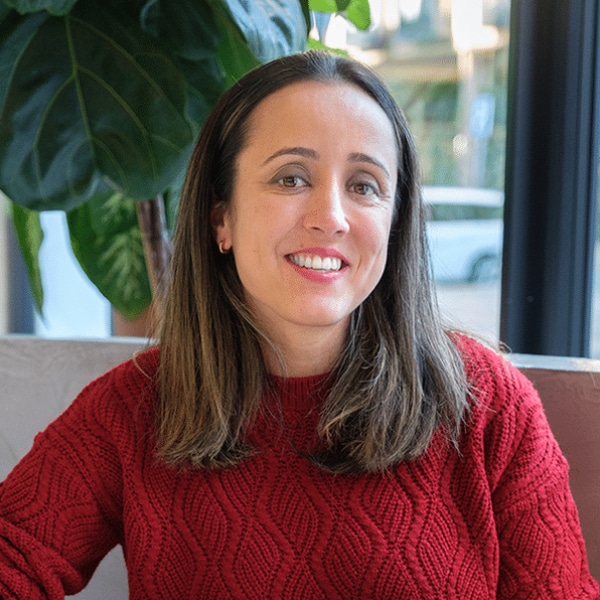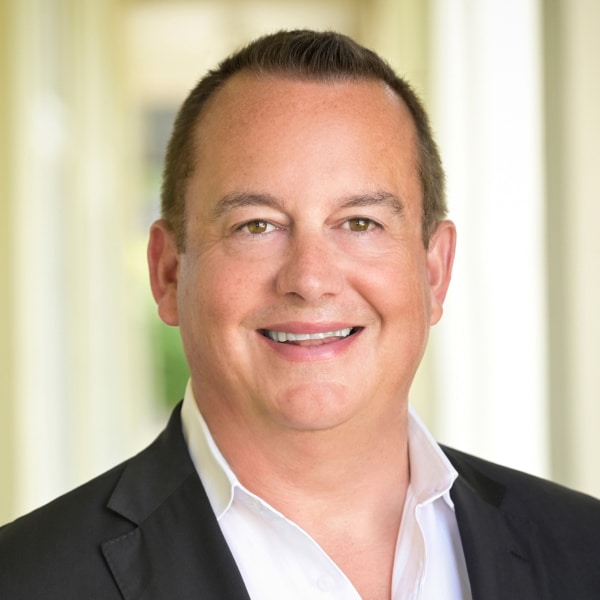Building An Agentic Workforce: AI’s Role In Modern Marketing
Colleen Malloy
CMO at Brunswick Companies
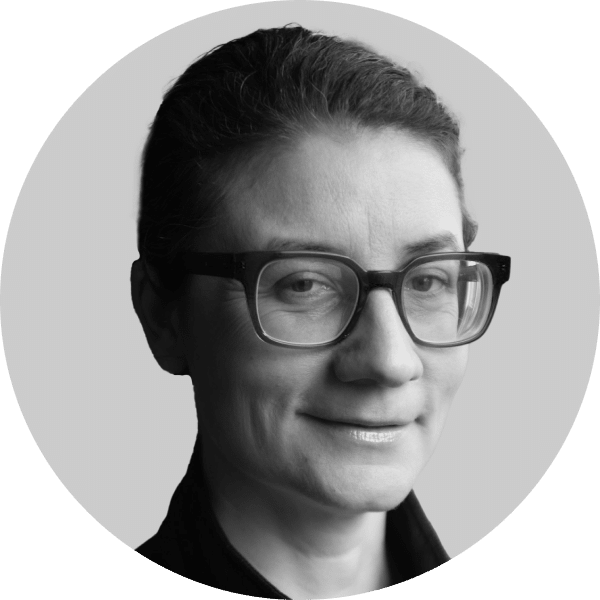
“AI has unlocked an opportunity for me as a CMO to produce more for my C-suite that shows value.”
Colleen Malloy
How can AI improve your team’s productivity and creativity? In this episode of the Leader Generation podcast, host Tessa Burg welcomes Colleen Malloy, CMO of Brunswick Companies.
Together, they explore how AI agents are reshaping the future of marketing and empowering teams to work smarter. Colleen shares her journey of building an agentic workforce, where AI agents streamline tasks, boost productivity and unlock new levels of creativity.
Listeners will gain practical ways to introduce AI into their organization, overcome fears of new technology and maximize AI’s potential in marketing. It’s perfect for leaders ready to innovate and increase their teams’ performance.
Highlights:
- The potential of AI agents in insurance and marketing
- Challenges and strategies for integrating AI within a conservative industry
- Overcoming fear and fostering AI adoption among employees
- Examples of simple, high-impact AI agents built by Colleen's team
- Compliance and data privacy in AI-driven workflows
- How AI agents reshape roles and hiring needs in marketing
- The evolving skillset for future marketers and problem-solvers
- The role of creativity in leveraging AI for business growth
- Colleen's vision for the future of AI agents in the marketing space
Watch the Live Recording
Tessa Burg: Hello and welcome to another episode of Leader Generation, brought to you by Mod Op. I’m your host, Tessa Burg, and today I am joined by Colleen Malloy. She’s the CMO of Brunswick Companies and she is already on the path of building out an agentic workforce. And we’re very excited because I feel like we’re at a space right now where not all CMOs are quite sure where agents fit in their company. So let’s dive into this, talk about what you’re doing, what your approach has been, but before we get started, Colleen, first, thank you for being here. Tell us about yourself and Brunswick Companies.
Colleen Malloy: Tessa, I’m so happy to be here. As you said, my name is Colleen Malloy. I am a marketer who’s had an interesting and Securitas path that has given me a lot of fabulous opportunities. I’ve worked in industries ranging from like the power sports industry, financial technology. I’ve worked in e-commerce. I spent my last couple years at a digital agency working with hospital systems and higher education. So I love that my career has given me just like this really wide range of experiences with different sorts of problems. And Brunswick Companies actually came to me. They were a client of my most recent agency and they are a large insurance agency and they had previously done the majority of their marketing work with some stitched-together agencies and partners. And no one really owned the marketing function. And there was really this realization that like they’re ready, they want to move forward and grow. They’ve got a third generation of owners leading the company. And so it was time and I feel like I’m this really lucky position that I am building a team from the ground up and agents just make sense as one of the key players for us as we move forward and build that team.
Tessa Burg: I love that your background is so diverse and I’m sure Brunswick Companies appreciates that you have lenses into a few different types of industries and some which are probably more technologically advanced than insurance, which has traditionally been conservative. So what have you seen as key opportunities and challenges for using AI agents within the insurance space?
Colleen Malloy: Yeah, I think that like, it is just like ripe with opportunity. Insurance is actually like, there’s this underpinning of technology everywhere. There are insurance-specific tools that allow our insurance sellers to go out and market to a bunch of different brokers. And so there’s all of this connected to technology here, but at the same time we’ve got islands and silos of technology that we’d be spending a lot of time, energy, and money integrating. And while we’re evaluating that, we also know that some of the work that’s been done by like manual data entry and manual email sends or whatever it might be, we’ve got an opportunity to think about how we might be able to use agents for some of that work too. So it’s like we’re taking this technology landscape and generally teams are pretty lean in this space. So there aren’t a lot of folks who are thinking about solving these problems and they’re kind of just used to the status quo of like, this is the way things are, this is the way things have been. And so it’s a great opportunity for us to be able to service kind of some internal clients while greasing the skids for us to be able to have all of the data that we need to do the good marketing work that we want to do.
Tessa Burg: So you mentioned serving internal clients. Can you give us a few examples of the types of agents that you’ve built and what are the use cases and needs that they’re meeting today?
Colleen Malloy: Yeah. I think, one, when I think about internal clients is we’re at the tail end of testing an agent that’s like so super simple. A lot of the folks who work in our agency have not, they’re in the beginning of their AI adoption journey. And I think this is true. Like this is something that shouldn’t necessarily sit on my plate as a marketer, but marketers tend to be at the forefront of AI. So we’re helping with adoption throughout our entire organization. So from a sales enablement perspective, we’re trying to get people to use ChatGPT or Claude to be able to help them rewrite emails and really simple things like that. And there’s fear of the technology. So we are building this super simple agent where instead of having to open the big scary ChatGPT window, you can just email an agent and you email the agent and we’re really just, we’re using ChatGPT for this, right? But you email this person. Person feels friendly and you get a response back. So, hey, help me write this email becomes I can do it in a tool that I’m already hanging out in all day long and I can get a response and I can keep a conversation going. It’s dead simple. It’s not hard to build, but it helps my team build the reps of building out these little agents and it’s like easy proof points for others in the team that like AI is something that’s not scary, it’s something that they can help them with, and it’s a way better use of sales enablement time than us building like brochures and PDF to help the team, right? And those are the other sorts of activities we might be doing to help enable our sellers.
Tessa Burg: I love that example. One thing that struck me was insurance has a lot of private information. Emails have a lot of private information. So what are some of the things that you’re doing around compliance or responsible use? And I imagine those policies probably also help build confidence with the users themselves who are, I’m guessing, hyper-aware of how secure insurance companies have to be.
Colleen Malloy: Yeah. And there is, like when we started talking about AI, that was one of the number one questions is like, hey, we have a lot of personal data, right? Like we’ve got so much personal data and so this is where the idea of redaction is huge, right? Like you can talk about a scenario, you can omit things, but you can share the nature of what you’re trying to do without necessarily disclosing. And so it’s really like share situations, not specifics, is a way that we’ve thought about this and wherever possible, just redact as much as you can. So an easy find change is sometimes all you need to do to be able to make something like ready for prime time. And but it is really critical that we’re not sharing any of that confidential information. Yeah.
Tessa Burg: I loved in your previous example how the agent you built really used an interface and methodology that the audience was already familiar with.
Colleen Malloy: Yeah.
Tessa Burg: Tell me a little bit about your approach with the other agents. Like how did you prioritize the use cases and determine how that comes to life, like what the user experience should look like?
Colleen Malloy: Yeah, so right now we’re honestly prioritizing things that I know that we can have success building. We are all new to this. None of us have built agents before. Nobody’s got a development background. Literally, my full-time team is two people, me and one woman with an operational background. So I want us to get wins and I want us to have those reps be fruitful, right? So while we’ve got all sorts of ideas of agents that could literally probably keep us from having to hire additional agencies, we’re not there yet. We’re starting with super easy wins. So the first agent that we built is so dead easy. Allie, who’s on my team, something that she had to do every morning was we want people to feel great about themselves on their birthday and on their anniversary. And so she sends them a personalized happy birthday and a personalized anniversary email. And we didn’t want those to feel cant. Okay, like what does it maybe take her, five minutes every morning? But she was able to get a rep of like, let’s put a spreadsheet together, everybody’s name, their birthday, their anniversary, and what’s a thoughtful detail that we know about them, right? Like let’s put something together. And so she was able to stitch together an agent that goes and checks a spreadsheet. Is it somebody’s birthday or anniversary? If yes, take it over to ChatGPT in this friendly tone. Take a look at something that they like. Write them a cute email. Send it from her email address. Like hopefully if you work for us, you’re not listening to this ’cause you’ll be sad to know that we’ve automated your happy birthday, but in a personal way. But it was like, we know she’s gonna be able to get it done. It’s gonna build her confidence that she can do this. And it takes the silly thing off her plate that she had to do every day. So she got to spend, it probably took her an hour and a half to build this, it saves her five to 10 minutes every day and it gave her the confidence that she can go and build the next one.
Tessa Burg: I think that example is lovely and I’m sure if anyone from Brunswick Companies is listening, they’re actually quite impressed and not upset at all. But it’s interesting that you said she doesn’t have any development experience and there’s only a couple of you on the team. How has building out agents to automate some of these tasks changed your approach to who you’re gonna hire next and what skills you need in-house to continue to scale and grow?
Colleen Malloy: I’ve got a specific example for that ’cause it’s like, okay, what are all of the things that we need to do in marketing, right? Like we need to build and maintain our website. We need a content arm. We need somebody who’s good at analytics. We need SEO. We need blah, blah. We need the whole spectrum of things. And so it’s really identifying based on, I have a somewhat broad skillset, but it’s like where are the places where we have an idea that AI can actually do a lot of the lifting? SEO was one place, but a place where it’s been interesting is I’ve worked with the same contractor for years and years and years for all of my design and UX work. And wouldn’t it be wonderful if she also could be an expert at copywriting? And this kind of shifts away from talking about agents a little bit, but I’ve been able to train her on how to use tools like Claude and arming her with the ICPs and the UVPs and all of the different acronyms we use in marketing, right? Our value props. And she’s been able with some training to also become a pretty darn good copywriter. So it’s like, how can I take folks and help them expand what they’re already good at to be able to get more out of a single role? And to kind of circle back to the question and taking it back to agents, I’m looking for creative problem-solvers and builders. I feel like I’m probably gonna be looking less for people who have really like super specialized skills because the reality is is that we can have conversations with AI that can help us get us there. And so it’s like, what are all of the things that we actually need to get done in our department on a repetitive basis? So is it keyword research? Is it some level of reporting? What are these things that we can think about? How could I stitch together data from someplace, repeatable instructions, and some level of creativity that isn’t too hyper-creative that a human can then review, right? So it’s like, I know this is like a conceptual answer to it, but like how do I get all of those agents in place and then figure out, where do we really need additional levels of creativity? But that’s the way that I’m thinking about it and I feel like it becomes more of a generalist approach rather than a deep specialist approach.
Tessa Burg: That is really interesting. I know I think a lot about how roles will evolve, but one thing you hit on that I totally agree with is problem-solvers. I think as we continue to innovate and build new ways of getting work done, there will be new challenges and those will arise from not only are we consuming AI, AI benefits and outputs, but so are our customers and clients. And so the experience of how they see work, of how they discover our products, of how they engage with our services will be completely different. And so it will be, you know, that creativity, that need to be a great problem-solver, I feel like will be core to what the next generation of skillsets will need to be as we look at the future of marketing.
Colleen Malloy: Yeah, totally agree.
Tessa Burg: Another question I had along those lines, there’s a lot of talk about will AI replace roles, but I feel like what you’re describing is these are new and different roles and are these areas where before you would have hired an agency and now you’re hiring a creative problem-solver? Or do you think that it’s in some ways an area that is new due to operating so differently that just it existed because you’ve started to go down this road of agents and now it’s simply an a new role with different skills that’s focused on how we scale and measure the impact of the use of agents?
Colleen Malloy: I feel like it’s a little bit of like it’s new roles and I also feel like, let’s say that I come into an organization that had a large, mature team. I don’t see people, like I couldn’t imagine myself seeing this as a way to cut my team back down to nothing, right? Like this is a way for me to help drive growth at 2x, 3x the speed I might have been able to do. I’m able to get things into market so much faster because of the tools that we have. And so I see so much of what we’re able to do is to have like these growth multipliers and so I actually have the ability to prove the value of the individuals on my team in ways that I didn’t have before because they can put on the super suit of the AI and just like multiply the level of impact they’re able to have as individuals. So like I think that the seats on the bus are gonna change, but I don’t think that there’s gonna be fewer seats on the bus. Like who’s going to be building these agents and monitoring their outputs and keeping an eye on what the future looks like? Like I don’t think that we are, you know, sometimes you hear these stories that are like sci-fi about like autonomous companies. Sure, they’re gonna be there somewhere in the future in some industries, but for the majority of us that are doing demand gen-based marketing, there’s so much work that is just gonna be augmented and different. So if I were giving advice to somebody who’s in college right now and thinking about their career in marketing, I would advise them in a much different way than I would’ve advised the 22-year-old version of me 20-some years ago. But I would still see a bright future for marketers. We just have to be thinking about the work in different ways.
Tessa Burg: I love that answer and totally agree that I think there is a ton of opportunity in marketing right now and I have not had an experience and maybe it’s just my bias, but also with other people I know who haven’t sat down, tried out an AI app or tried building an agent for themselves and haven’t enjoyed it and haven’t found like a little slice of joy from building something themselves, see it work, and see it work really well and give other ideas. Now we are also building a suite of agents and I feel like as you start to see them operate, as you start to see results, demo them for clients, it leads to more ideas and more extensions and applications of things you simply just couldn’t do before. It’s net new benefit, net new now.
Colleen Malloy: Yeah. Well, and I feel like something that I used to get super frustrated with is I would approach a technology partner and be like, gosh, I wish that your thing could just like do this magic thing. And they’d say, oh, well, we’ll submit a story for it and maybe it’ll be on a development roadmap in 400 years, right? I should just build that thing now. Like there’s no like, right? Like we all have these complicated tech stacks where this is tied to this and all our data’s over here and it’s coming over here and over here and there’s always some interesting, discreet use case that’s just for you and just for your industry that nobody’s ever gonna build for you. And it would cost you a lot of money to have somebody build it. And now in an afternoon, we can build those things ourselves and so we can do the really effing cool stuff that we haven’t been able to do because as strategic marketers, we just don’t have those skillsets. Now, if I’m able to dream it and imagine it, the chances that I can build it are really high. And that’s the most exciting thing for me as a marketer, that it has taken off the handcuffs of budget and skills and you can just build stuff, test it, and iterate and it’s so freeing and it’s so exciting.
Tessa Burg: Yeah. And I feel like that is where growth comes from is the inspiration, the I wish I always could. What would this look like if? And not from productivity of I feel… I hear a lot in the headlines like, productivity is going to increase or we’re gonna be able to do less with more. The way that is correlated to growth is the human aspect of being able to dream and imagine what happens next and being able to connect what is what you’re productively producing to customer value because just ’cause you can do less with more doesn’t mean you impacted or changed the value to the client. What leads to growth is because the client now receives it in a way that is more personalized, more relevant, a better time for them. And that’s where the new positions will exist is that bridge from productivity to value.
Colleen Malloy: And I think that that’s something that there is so much, like AI has unlocked this opportunity for me as a CMO to be able to produce more for my C-suite that shows value too ’cause there’s a lot of like baseline, brandy kind of stuff that like, hey, I’m gonna ask all of your sales organizations to take an afternoon off and we’re gonna do this workshop and I’m just gonna like assimilate all of this stuff, but it was totally worth everybody’s time and you’ll see a new website in six months to a year. And the amount of time it would’ve taken for me to do all these intermediary reports that went back to the C-suite that like is just to make them feel better really that like we’ve got it, we’re moving forward. I can do that in a snap because I’ve recorded my meeting. So I’ve got all my meeting notes and then I’ve dumped those in ChatGPT and I’ve told them all of the context in a way that I feel like I’m talking to my therapist about what happened in this meeting and suddenly I have this really great output that shows, oh, wow, like this is what happened in the brand personality meetings and this is what happened in the UVP meetings and we’ve got these physical assets that show like, wow, we’re making progress in a way that like generating all of this stuff would’ve slowed me down and would never have been worth my time in the past. And now it’s super easy.
Tessa Burg: So you have given some great examples of where agents not only help automate, increase productivity, but also inspire and elevate the work that marketers are doing. If we were to check back in a year, what kind of agents do you imagine you’ll be creating then?
Colleen Malloy: Oh, gosh. There’s so many things we wanna be doing, but I would say that some of the agents that I’m most excited about in the next year are agents that will plop ready-to-edit blog posts in somebody’s Asana task list. So based on, you know, culling from our webinar content and being able to understand what’s going on with SEO. So like, hey, here’s the ready-to-go blog posts that just every two weeks is gonna plop into somebody’s email or Asana ready to go. So that’s one that I’m really excited about. I’m also really excited about agents that, this goes back to sales enablement, but agents that are gonna be able to create really personalized first-touch emails. So somebody’s filled out a form on our website and we’ve been able to learn a little bit more about you and there’s an email that’s just really ready to go for that seller, which doesn’t sound that exciting, but when you live in a world where it can take two days to get through a process to get to that first email, it’s a huge win for us. So things like that are things that I’m excited about. I don’t know. Yeah, that’s just a couple ideas right there.
Tessa Burg: I like that it builds off the theme of staying in the direction of a more thoughtful and responsive world. So, well, thank you. We’re at time. This has been a fascinating, inspirational conversation. If our listeners want to reach out and ask questions to you directly, where can they find you?
Colleen Malloy: Oh, yeah. Just find me on LinkedIn. So Colleen Malloy. I work at the Brunswick Companies. Hit me in my inbox. Best place for us to chat.
Tessa Burg: Awesome. Well, thank you for being a guest and for the listeners, if you want to hear more episodes of Leader Generation, you can find them at modop.com. That’s modop.com and click Leader Generation. We just redesigned our website and so it’s not under Podcasts anymore and I forgot the headline, but just go to Mod Op, check out the work, and find Colleen on LinkedIn. And definitely I hope that you’ve been inspired to try creating some of your own agents and starting to see what’s possible in the new agentic world in marketing. Thanks, Colleen. We’ll talk to you again soon.
Colleen Malloy: Thank you.
Colleen Malloy
CMO at Brunswick Companies

Colleen Malloy is the Chief Marketing Officer at Brunswick Companies, where she leads AI adoption initiatives and drives strategic growth through data-driven marketing. With more than 20 years of experience in technology optimization, SEO, content marketing and brand strategy, Colleen has a proven track record of using innovative tools to create impactful strategies. Prior to Brunswick Companies, Colleen held leadership roles at Fathom, StackSource and Design Milk Co., where she was known for championing high-performing teams and optimizing marketing tech stacks.
